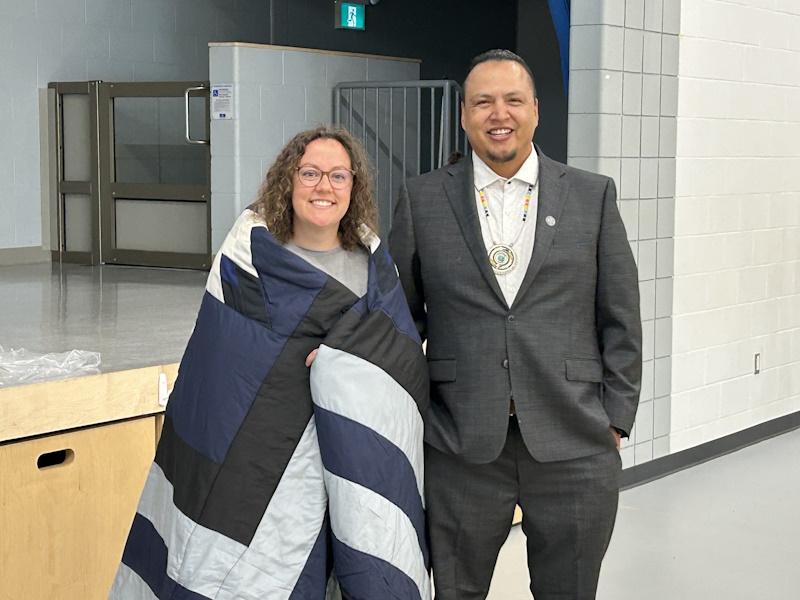On Friday, August 1, the Honourable Rebecca Alty, Minister of Crown-Indigenous Relation, attended a gathering at Fishing Lake First Nation to announce a settlement designed to address the Nation’s Agricultural Benefits claim, commonly known as a Cows and Plows settlement.
Dating back to the original signing of Treaty Four, First Nations were granted rights to farming tools, crop seed and livestock. Those provisions were not met by the governments of the day. The settlement will provide over $101 million in compensation to Fishing Lake First Nation for the government’s failure to meet the terms of its original Treaty obligations.
“Today’s settlement with Fishing Lake First Nation is a meaningful demonstration of our commitment to acknowledge and address historical injustices.” said Alty during her address to the community at Chief Sabitawasis School. “Building trust is essential in our efforts to advance reconciliation with First Nations. However, in order to build trust we must first take responsibility. Our hope is that this agreement will strengthen Canada’s relationship with Fishing Lake First Nation for generations to come.”
While some First Nations who have received similar settlements have stated they’ll invest the money in infrastructure, capital projects or programming, Fishing Lake First Nation Council elected a different path. Fishing Lake First Nation will invest 100% of the settlement funds into the newly created Waywaynih Kunawapunteeing Trust to ensure the capital grows for generations to come.
A joint release on behalf of the First Nation states that by keeping the entire settlement intact, the Nation can leverage loans with interest rates well below the annual returns anticipated on the trust’s investments. This strategy will allow the Nation to provide immediate benefits such as per-capita distributions without reducing the value of the settlement.
The brief goes on to note that the approach creates a long-term source of wealth, enabling investment in community priorities such as language, culture, housing, and economic development, while ensuring that future generations also benefit from this historic agreement. It represents a step toward reclaiming economic independence and advancing the vision of mino-pimâtisiwin (a good life) that the Nation’s ancestors sought when entering Treaty 4.
“When our ancestors entered into Treaty, they did so at a time when our people were suffering,” stated Darcy Desjarlais, Chief of Fishing Lake First Nation. They signed not only for their own needs, but with foresight for the generations to come. That same thinking guided us as we created this trust—designed not only to help our people today, but to ensure future generations have opportunities our ancestors were denied. This settlement is about more than money; it is about creating an economic foundation that can grow, give back, and pull our Nation forward, helping us reclaim what was lost and build a better future.”
The announced agreement works in tandem with the Truth and Reconciliation Commission’s Call to Action and is guided by the United Nations Declaration on the Rights of Indigenous Peoples Act.
